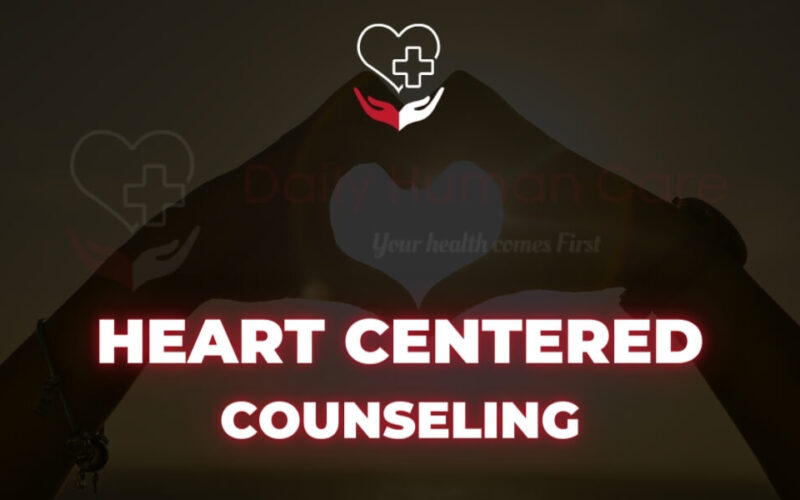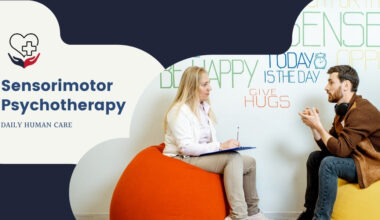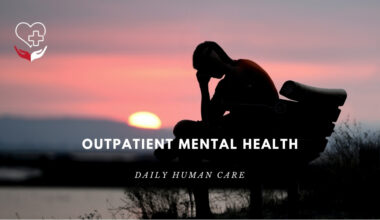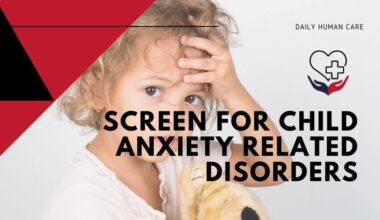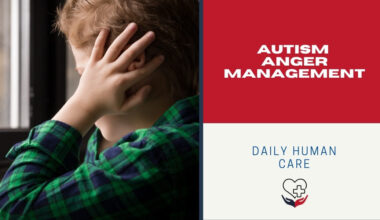Table of Contents
Heart Centered Counseling and Its Importance
Heart Centered Counseling/Heart Centered Therapy (HCT) is a profound activity that is driven by heart knowledge dialogue techniques. Of course, the heart knows how to restore our consciousness and dissolve convictions in pain, uncertainty, and separation.
HCT promises profound recovery without the pain being resurrected. It is a straightforward approach that exposes the essence of a problem politely and provides a gentle yet deep solution.
The HCT is a vision and hope-restoring experience. When the heart has awakened, the depths of work cannot be met.
This therapy is a mental health approach that emphasizes the importance of being your true self to lead the most fulfilling life.
It’s based on the principle that everyone has a unique way of looking at the world. This view can impact your choices and actions.
This therapy also involves a core belief that people are good at heart and capable of making the right choices for themselves. If you don’t hold yourself in high regard, it’s harder to develop your full potential.
What are the three core conditions for therapeutic change?
The humanistic psychologist Carl Rogers set up the method of heart-centered therapy in the 1940s. The purpose of person-oriented treatment is to provide clients with the conditions necessary to discuss their emotions, values, behavior, and view of the world in a positive manner and to help clients develop and cope with their current and future issues.
One essential idea is that people are usually trustworthy, resourceful, able to understand themselves and lead themselves, capable of making positive changes, and able to live efficient and productive lives. Another main principle is that the therapist’s roles and characteristics and the nature of the relationship between client and therapist are primary determinants of the therapy outcome.
Rogers believes that therapists have to have three qualities to build an environment of development that facilitates a person’s improvement and his or her willingness to develop:
- Congruence (genuineness and realness)
- Unconditional positive regard and acceptance
- Exact empathy understanding (the ability to understand another person’s subjective world in depth).
1. CONGRUENCE
Congruence means that therapists with their clients are true, authentic, and sincere. Their inner perception and outer speech match, It is called congruence. The therapist is authentic and proves that he is trustworthy and helps develop a positive relationship with the consumer. It also acts as a model to consumers, enabling them to be their true selves without any fake forehead, to share their thoughts and feelings.
2. UNCONDITIONAL POSITIVE REGARD and ACCEPTANCE
The therapist is sincerely concerned about their clients and does not measure their feelings, sentiments, or behaviors. In other words, he is unconditional positively concerned. Every customer is welcomed and respected without any stipulation about who he is. Customers should not be fearful of criticism or clinical rejection.
3. ACCURATE EMPATHIC UNDERSTANDING
Accurate empathic awareness ensures that the therapist correctly and compassionately knows the perspective and emotions of his client. The therapist understands that each person’s experience is subjective and tries to see it from the client’s particular viewpoint. A significant aspect of precise empathy is to prove that the therapist “gets this through” the client’s experience. This promotes customers to become more self-reflective and encourages them to understand themselves more clearly.
If you have ever met someone you really felt like … they fully understood from where you came from, or they could relate to how you felt – that’s true empathic understanding.
Rogers maintains that empathy allows consumers
- to pay attention to their experience,
- to see past experiences on a different level,
- to adjust their views of themselves, others, and the environment.
What are the goals of Heart Centered Counseling Therapy?
• One of the main aims, like all treatments, is to minimize or ideally eradicate feelings of distress. Additional targets include in client-centric therapy:
- Increased knowledge of self
- Enhanced self-directing capacity to make desired improvements
- Clarification improved
- Better self-appreciation
- More self-confidence
How long does Heart Centered Counseling last?
Heart centered therapy can be short-term or long-term, depending upon the client’s needs. Sessions are weekly and last for about one hour each, and costs are comparable with other types of therapy
Key Assumptions in Heart Centered Therapy
His observations about humans demonstrate Rogers’ humanistic approach to therapy. He assumed they are:
- Basically decent (instead of the fundamentally defective and “treatment” necessary)
- True desire to cure and make positive changes and to have in themselves the resources to improve their behaviors, actions, and self-conceptions
- Have an inherent urge (or trend) to achieve its life potential (Rogers’s self-actualization tendency).
- Personal potential aspects of an individual include:
- An intrinsic desire and need to socialize on a genuinely personal level with others
- Mercifulness to others
- Creative term
- The planet curiosity
- Trust others and be self-confident
- An opening to multiple life experiences
What are the Essential Traits of Heart Centered Counseling Therapists?
Rogers claimed that therapists had to possess three characteristics to make customer-centered therapy optimally successful.
Genuine empathy – this relates to the willingness of a therapist to interpret and appreciate situations from the client’s viewpoint. When the therapist understands empathically what the customer experiences, it also helps the customer to understand better.
Suitable regard without conditions – Therapists should maintain a complementary view of their customers and not a judgment. Rogers thought that conditional acceptance and encouragement from others resulted in some issues for consumers. If you felt accepted unconditionally and that fear of refusal was eliminated, you could talk about your feelings openly and honestly.
Congruence – This includes the therapist’s ability to be accurate, honest, and genuine with customers. It leads to building a safe and enjoyable climate and presents a positive role model for consumers.
In terms of therapists’ characteristics, it helps clients to make positive, self-directed changes and to more realistic and positive light for the world – as for themselves.
What are the Benefits of Heart Centered Counseling Therapy?
- • For anyone involved in this therapy, there are numerous potential benefits. They contain (but not limited to):
- Increased ability to change your life self-directly
- Increased knowledge of self
- Much less difference between the real self and the ideal self of the client
- Increase in happiness and welfare
- More supportive partnerships and more satisfying
- Reduce negative emotions in general
- More calm/decrease in general anxiety
- Enhanced mood/ markedly fewer or no depression symptoms
- Greater self-esteem
- Enhanced ability to openly and authentically express oneself
- Greater readiness for new experiences
- Enhanced stress management ability
- Healthier and more equilibrated world views
- Greater transparency for new concepts
- Reduction of maladjustment
- A greater sense of self-confidence
- Removal of remorse or shame because of mistakes in the past
What are the Advantages of Heart Centered Counseling Therapy?
There are several advantages of heart-centered therapy. They include:
- A secure and acceptable setting, which is particularly essential for trauma customers.
- A clear emphasis on the here and now that helps consumers stop living or worrying about the future
- Unconditionally positive respect has a substantial impact on customers, making them feel accepted and prized for who they are rather than judged by their perceived deficiencies – perhaps for the first time in their lives!
- The idea that the customer is the expert encourages customers to seek solutions within themselves and to become more autonomous and self-directed
- The non-directive approach dramatically reduces the propensity of therapists to rely on the therapist to respond
- The emphasis is on personal self-awareness, knowledge of self, and growth.
- Customers are not known to be ill patients who need to be healed or treated
- The therapeutic climate supports and facilitates improvement
- Instead of the therapist, the person handles the recovery process
- It empowers and promotes personal accountability and helps to remove the thinking of the victim. The clients find their solutions and improve.
What are the Disadvantages and Limitations of Heart Centered Counseling Therapy?
Although heart centered therapy is highly regarded by many, it’s not without its limitations and disadvantages. Critics of this particular approach to therapy point out the following:
- It is better for educated customers.
- The approach is based on a people-focused view
- It is overly generous to believe in people’s ability to change – particularly with a non-directive approach.
- Therapists do not gather enough information from the customer to genuinely help them achieve their goals to be non-directive. In this way, too much emphasis and confidence are placed on the belief that the customer is an expert and has the answers within him.
- Inadvisably, the therapist may encourage or enable an ill-adaptive client’s behavior – especially where he comes from a person (a person who is considered an expert or authority)
- Many person-centered therapy critics regard the assumption that people are fundamentally good as fundamental (and even dangerous). History has repeatedly shown that people are often egoistic and don’t want or always try what the general population considers to be correct or moral.
- Only a few therapists can be genuinely humanistic in their practice.
- There is a natural tendency to assist people, who make therapists susceptible to influence their clients’ direction and decisions. Many therapists find it difficult to be as underactive as the approach requires.
- The therapist’s counter-transfer (e.g., where clients create adverse feelings within the therapist) can sometimes hinder unconditional positive consideration. Still, it’s not always possible because some clients are very hard to work with and challenge even the best-in-class therapist. It isn’t always realistic.
- A lack of empirical evidence supports the effectiveness of client-centered treatment
- Too much empathy by the therapeutics will hinder the therapist’s capacity or readiness to question his client if appropriate.
- For the wrong reason, often, people pursue counseling like validation for poor decisions to mitigate blame or disgrace. Therapy focused on an individual does not encourage therapists to challenge inappropriate, self-destructive, or unethical conduct (It should be noted that therapists at least in the United States are allowed by law to violate their confidentiality and under the circumstances to take reasonable action, such as when clients are an immediate risk to themselves or others);
- A demanding practice of customer-centered therapy 1) a lack of therapeutic methods and 2) a strong dependency of the therapist to be consistently non-judgmental and 3) unreservedly willing and empathic towards his clients
Some best heart centered counseling sessions are provided in Greeley by heart-centered counseling Greeley, in Loveland by heart-centered counseling Loveland, and by heart-centered counseling fort Collins
For more interesting articles, keep visiting Daily Human Care.

